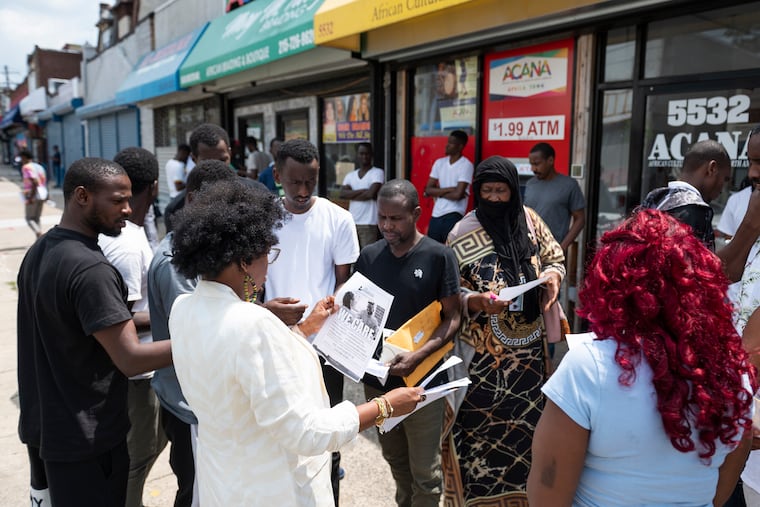Mobile crisis units are a key resource for vulnerable Philadelphians
To invest in public safety and the well-being of the city's most vulnerable, the Parker administration must make sure mobile crisis response units are available to residents.

Last month, Mayor Cherelle L. Parker’s administration decided to terminate the city’s $3.8 million contract with the West Philadelphia Community Mental Health Consortium, a nonprofit that has provided mental health treatment to uninsured people for over five decades. The decision was made, according to Inquirer reporting, because of city concerns about the nonprofit’s governance, loss of nonprofit status, and possible financial mismanagement.
A portion of this funding supports the consortium’s mobile crisis response unit, which dispatches trained behavioral health service providers to provide on-site treatment, de-escalation, or transportation to people experiencing mental health emergencies. This crisis response unit, which answered 1,200 calls last year, is the only such service providing coverage to West and Southwest Philadelphia.
Without funding from the city, it will cease to operate.
Its absence will leave a serious gap in care options for residents of these areas, who may soon face the agonizing choice of either not asking for help in an emergency or risking a call to the police that could escalate the situation, resulting in the injury or death of a person in crisis.
» READ MORE: Philly, stop sending police to mental health crises | Opinion
Police are not mental health professionals and are not equipped to care for people in crisis. A recent study by researchers at Johns Hopkins found that 23% of all police shootings involved civilians with mental health conditions and that 67% of police shootings of people in crisis were fatal. Other research shows that among civilians with mental health conditions, Black people are killed by police at higher rates than people of other races.
By contrast, nonpolice crisis response teams, which have recently gained traction across the country, have demonstrated remarkable effectiveness. Several cities report that only about 1% of their mobile crisis calls end up requiring police backup, and no safety issues or injuries to crisis responders have been documented. The main logistical challenge these programs encounter is lack of funding.
Police are not mental health professionals and are not equipped to care for people in crisis.
Failing to offer nonpolice options for mental health crisis response also risks running afoul of federal disability law, as other cities have discovered. Washington, D.C., for example, is currently engaged in a federal lawsuit after a local nonprofit alleged that the city’s practice of responding to psychiatric crises with law enforcement personnel rather than mental health providers violates the Americans with Disabilities Act. Since people who report physical health emergencies receive responses from trained medical professionals rather than police, the lawsuit argues, this amounts to unequal treatment of people with mental health conditions by denying them the same quality of care.
In February, the U.S. Justice Department issued a statement confirming that D.C.’s practices may plausibly constitute a violation of federal disability law, noting that federal investigations in several other cities determined that deploying police to behavioral health emergencies is discriminatory and illegal, in addition to being harmful and ineffective.
Last year, City Council approved an extra $3 million toward mobile crisis response in Philadelphia. Many viewed this increased prioritization of nonpolice crisis care as a direct response to the killing of Walter Wallace Jr. Wallace, a Black man living in West Philadelphia, was shot by police in 2020 following a 911 call requesting a mental health intervention. Removing the option for people in crisis to access trained mental health professionals rather than armed law enforcement puts Philadelphians at risk of possibly being harmed by police, or deterred from seeking help altogether.
At present, the city has not announced plans for maintaining or expanding mobile crisis services, which jeopardizes the welfare of our most vulnerable community members. It also marks another example of the Parker administration’s pattern of intensifying law enforcement responses to public safety issues while cutting or eliminating social services.
To invest in public safety and well-being, the Parker administration must continue to make sure mobile crisis response units are available to residents. If the West Philadelphia Community Mental Health Consortium’s funding cannot be reinstated, the city must offer immediate alternatives for nonpolice crisis response so continuity of care is not disrupted, and engage in ongoing consultations with community members in impacted neighborhoods so that residents’ mental health needs are better understood and addressed.
Max Osborn is an assistant professor of sociology and criminology at Villanova University.